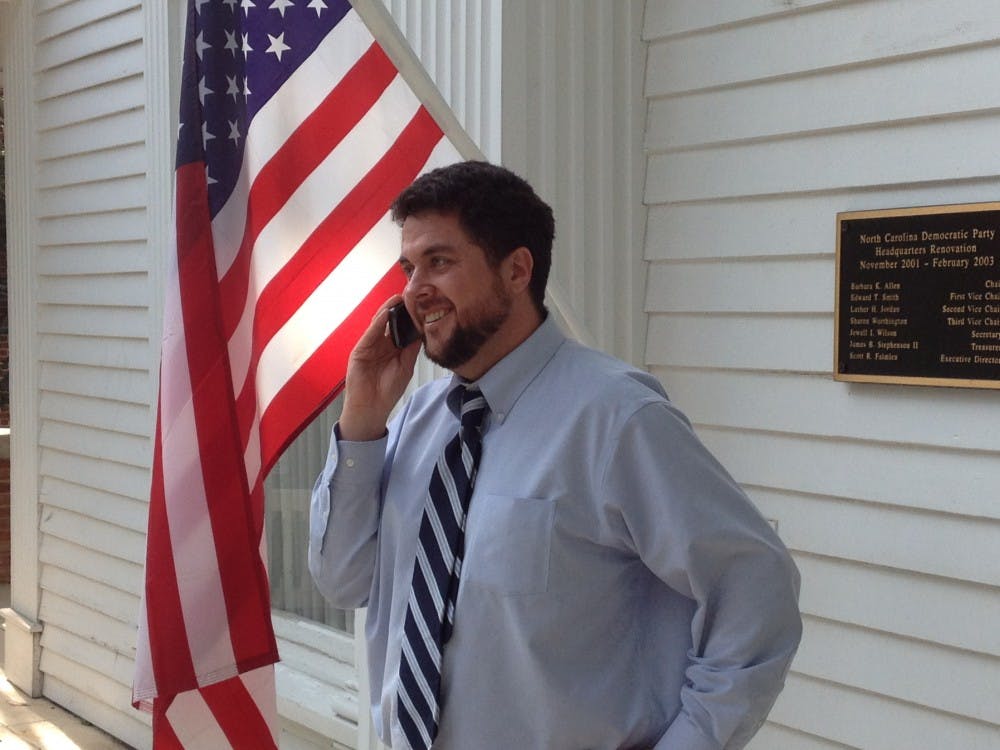As the N.C. Democratic Party works to rebuild and unify support after losing control of state politics in the last election, new executive director Robert Dempsey vows to bring accountability and change to his leading role.
State & National Editor Sarah Brown spoke with Dempsey about state politics today, the 2014 elections and how the party will address recent conflicts within its state leadership — including the resignation of vice chair Nina Szlosberg-Landis and a formal complaint filed by former employee Ellen Stankiewicz against chairman Randy Voller.
DAILY TAR HEEL: What specifically drew you to North Carolina?
Robert Dempsey: North Carolina is a very important state electorally. It’s absolutely imperative (for Democrats) to maintain control of the U.S. Senate by reelecting Kay Hagan (in 2014).
Obviously there’s a little more to do with working on rebuilding the party, and we certainly want to work toward regaining our majorities in the legislature and also looking at the governor’s seat as well.
I want to make sure that the day-to-day functioning of the party happens — and happens as smoothly as possible.
DTH: What are some of the similarities between this state and other states you’ve worked in?
RD: I’ve worked extensively in Ohio, full-time for 3 electoral cycles.
There are a lot of similarities between North Carolina and a state like Ohio. Clearly there are some economic differences, and I think North Carolina is in a better situation financially, not having been as reliant on manufacturing as a state like Ohio is or was.




